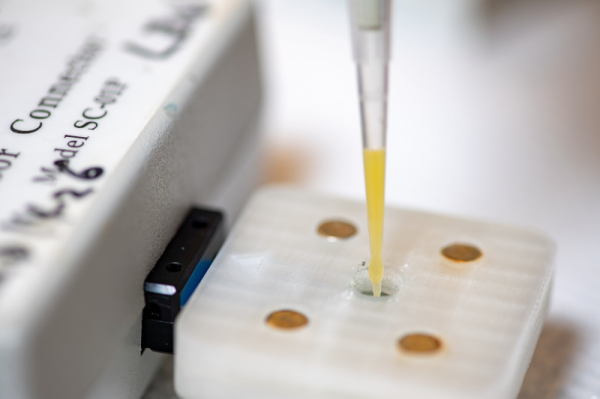Typically, detecting glyphosate — a herbicide — in a beverage requires a sophisticated test setup. But Washington State University has a 3D printed sensor that uses nanotubes to simplify the detection of the toxin.
The idea is very similar to inexpensive blood glucose monitors. The test will eventually find use for human samples, but the initial testing was for detecting contamination in orange juice.











